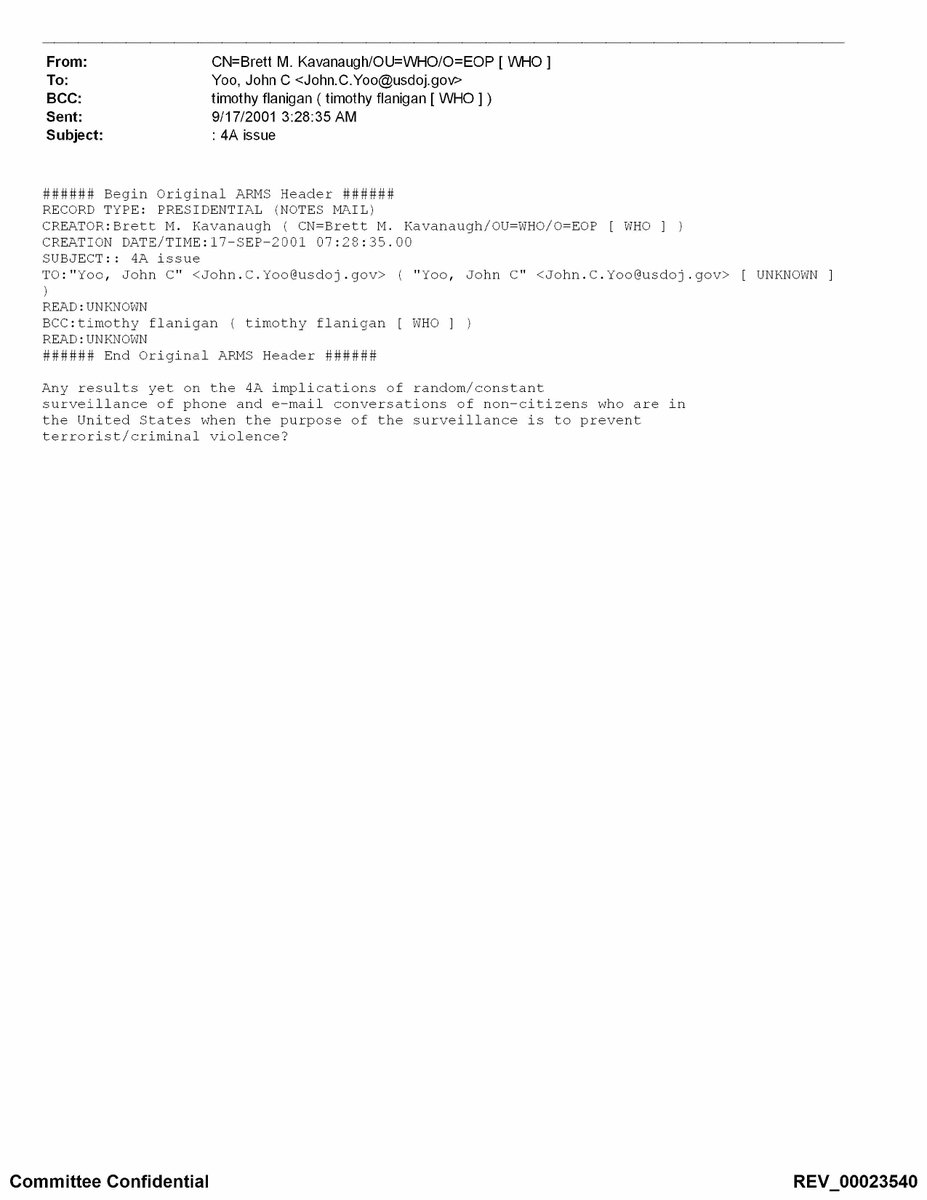National Archives Confirms Existence of Numerous Kavanaugh Records on Surveillance Programs
In response to EPIC's Freedom of Information Act suit, the National Archives has now confirmed that there are hundreds of records concerning Brett Kavanaugh's role in controversial White House surveillance programs, including warrantless wiretapping and the Patriot Act. The programs were later suspended, curtailed, or modified by Congress. The communication to EPIC revealed that Kavanaugh sent 11 e-mails to John Yoo, the architect of warrantless wiretapping; 227 e-mails about "surveillance" programs and the "Patriot Act;" and 119 e-mails concerning "CAPPS II" (passenger profiling), "Fusion Centers" (government surveillance centers), and the Privacy Act. The National Archives has processed roughly 300,000 pages of Judge Kavanaugh's records between 2001 and 2003. These records will be released this month pending White House approval. EPIC has warned that Kavanaugh, both as a top-level White House aide and then as a federal appellate judge, has shown little regard for the Constitutional privacy rights of Americans.
https://epic.org/2018/10/national-archi ... s-exi.html
Here are the search results. These records have been processed for release by the National Archives, waiting on the White House...

‘Kavanaugh sent 11 e-mails to John Yoo, the architect of warrantless wiretapping; 227 e-mails about "surveillance" programs & the "Patriot Act;" and 119 e-mails concerning "CAPPS II" (passenger profiling), "Fusion Centers" (government surveillance centers), & the Privacy Act.’

Sen. Patrick Leahy
THREAD #4: A point-by-point breakdown of Judge Kavanaugh's claims about his work on a controversial wireless wiretapping program.
3:16 PM - 3 Oct 2018
Exhibit 4: In 2006, I asked Kavanaugh about his knowledge of a controversial warrantless wiretapping program, disclosed in a 2005 article. I asked, “You had not seen anything, or had you heard anything about it, prior to the New York Times article?”
His reply: “No.” “Nothing at all?” “Nothing at all,” he testified. He later reiterated in writing, “I had no involvement in meetings, briefings, or other discussions in shaping the program or the legal justification for the program.”
The reality? Ex. 4a: In a 2001 email to John Yoo, BCC’ing Timothy Flanigan, Kavanaugh asks “Any results yet on the 4A [Fourth Amendment] implications of random/constant surveillance of phone and e-mail conversations …?”
On the same day, Yoo wrote a memo to Flanigan on “the legality of a ‘hypothetical’ electronic surveillance program.” This memo, along with another Yoo memo, provided the legal authority for the warrantless NSA wiretapping program detailed in the NYT article.
Kavanaugh could have told me he was only involved in early discussions on warrantless wiretapping, but he did not directly work on the classified program. Instead he denied everything. Again, his testimony is just not credible.


